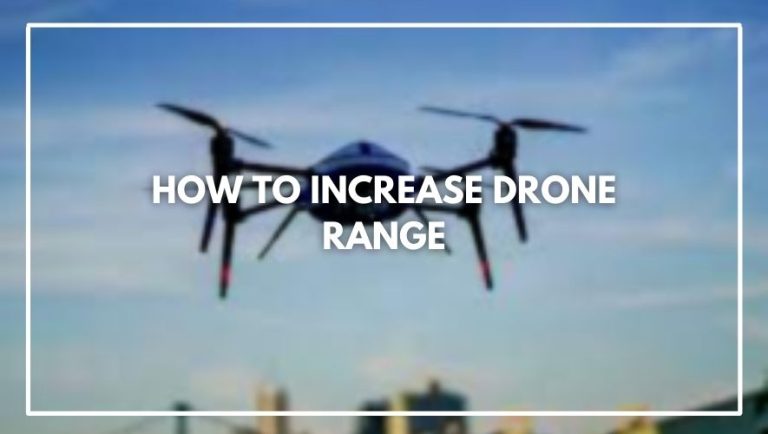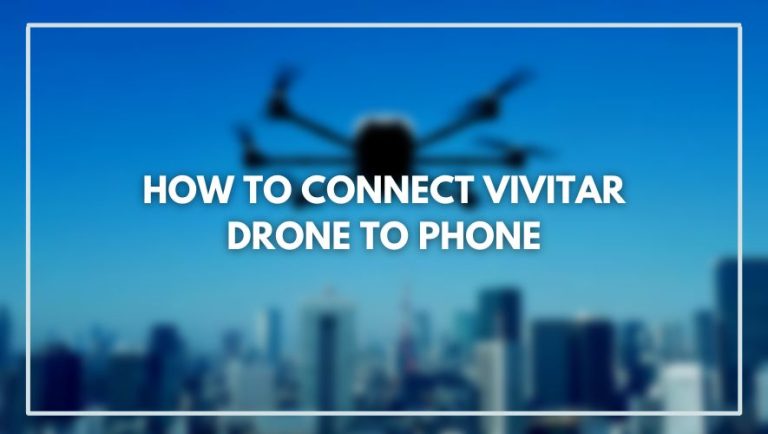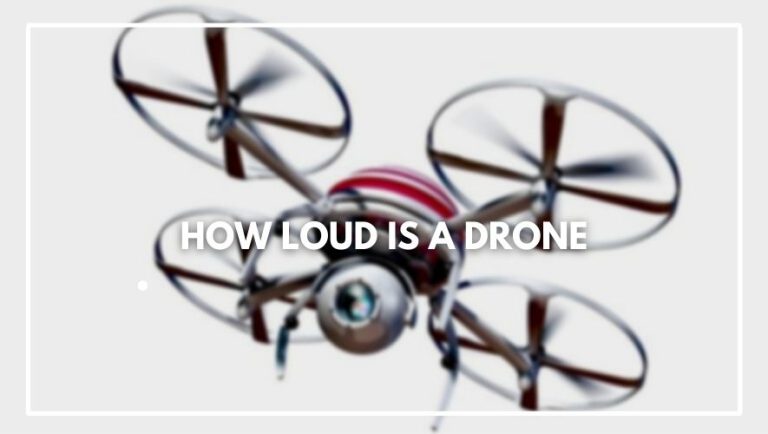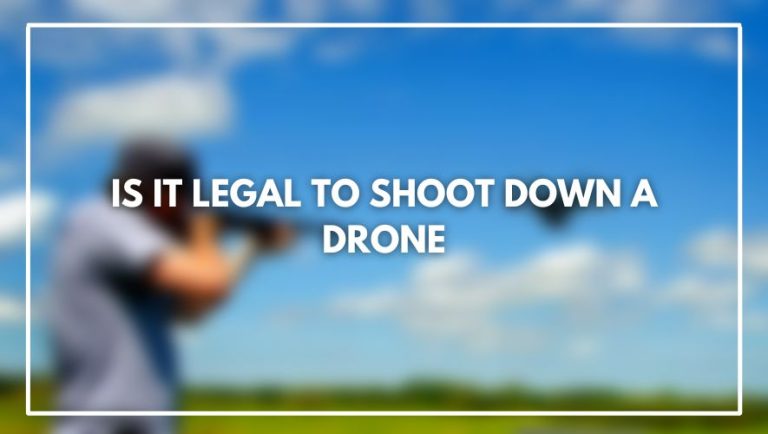Do You Need A License To Fly A Drone? Drones are the hot new thing for hobbyists, professionals, and consumers alike. Many people are buying drones to use as a tool or just for fun. However, there are rules and regulations that must be followed in order to fly your drone legally.
No, you don’t need a license to fly a drone but you need a Trust Certificate to fly a drone. FAA has strict rules about how high and how far away from anyone or anything you can fly your drone. If you don’t follow those rules, it could be very dangerous or even deadly for people on the ground.
What Is A Drone?
Drones are a type of unmanned aircraft. They are also called unmanned aerial vehicles (UAVs), or unmanned aircraft systems (UASs).
Drones have been used for many different purposes, including:
- In the military, drones are used to conduct surveillance and attack enemy targets.
- For hobbyists and photographers, drones provide unique perspectives from which to capture images. Drones can be equipped with high-quality cameras that allow for stunning images from heights where planes would be unable to fly.
Do I Need A License To Fly A Drone?

Need For Drone Pilot Certification
You may be wondering, “Do I need a pilot license to fly a drone?” The short answer is no. However, there is still some paperwork you will want to fill out and tests you’ll need to take before you can legally fly your drone around other people.
There are two types of pilot licenses: recreational and commercial. Recreational drone pilots must pass an exam and receive a Part 107 certificate from the FAA’s UAS Learning Centers (ULC). Commercial pilots must pass both exams and also complete additional training at a certified flight school.
Recreational Vs. Commercial Drone Certificate
When it comes to the two types of drone pilots, there are some key differences. Recreational drone pilots must be at least 16 years old and can’t fly their drones under 400 feet above ground level (AGL).
Commercial drone pilots must be at least 18 years old and need to get a permit from the Federal Aviation Administration (FAA) before they can fly.
Commercial operators also have additional requirements: they shouldn’t fly over people or above crowds; they should give way to manned aircraft; and they should not operate within five miles of an airport without permission from air traffic controllers.
Getting A Recreational Drone Certificate
To get your recreational drone certificate, you’ll need to be at least 14 years old. You’ll also need to pass both a written test and a practical test.
The written exam tests your knowledge of the National Airspace System (NAS), airspace classifications, and regulations regarding drones—basically, it’s just like the test you take when you’re learning how to drive a car.
Once you pass that portion of the exam, there’s only one step left: taking an actual flight with an experienced drone pilot who can judge whether or not your skills are up to par.
You can find out more information about testing centers near you by visiting this page on Drone U’s website. If there aren’t any testing facilities in your area or if they’re too far away from home for convenience’s sake.
Consider enrolling in one of their online courses so that you can learn everything from basic safety precautions all the way up through how best practices apply when flying recreationally versus professionally (hint: most rules apply for both).
Getting A Commercial Drone Certificate
The first step to getting a commercial drone license is to pass a knowledge test. The test consists of 50 multiple-choice questions and you need to score at least 70 percent to pass.
The second step is taking a practical test, which requires you to fly your drone in different situations while demonstrating that you know how safely operate it. The practical exam is administered by an FAA-approved examiner and can take place in a real-world environment or in an FAA training center.
Once you have passed both tests, the FAA will issue your certificate and put it on file so that they know who has the required skills for flying drones commercially.
Why Do You Need A License or Certificate To Fly A Drone?
The first thing to understand is that airspace is a shared resource. The 2nd thing to know is that it’s a high-risk environment, with thousands of aircraft and millions of people on the ground all sharing the same airspace at any given moment.
Drone operators must be trained and licensed, as they are responsible for their actions in this shared environment. They must also meet set standards so they can be held accountable for their actions if something goes wrong or causes an accident or injury — which could happen if someone accidentally flies into restricted airspace around airports or military bases, for example.
What Kind Of License Do You Need To Fly A Drone?

There are two classes of drone license. The first is an FAA 107, which is for recreational use and the second is an FAA Part 107, which is for commercial use.
That’s the simple answer: if you want to fly a drone commercially or for profit (or even just do it professionally), then you need to have the proper qualifications and paperwork. To find out what those qualifications are, read on!
How Much Does It Cost To Get A Drone License?
The cost of a drone license varies by state, but it’s generally not very expensive. If you want to fly your drone commercially or as an amateur in an area that doesn’t require a license, there is no charge. But if you want to fly for fun with the possibility of making money later on, then the cost can be as little as $10 per year in some states and up to $300 per year in others.
The exact price will depend on how long you have been flying drones and what kind of license you need. This means that if you are new at this hobby, then it may take longer than usual to reach your goal because most licensing authorities charge based on experience rather than age (although some do offer student discounts).
How Long Does It Take To Get A Drone License?
The FAA estimates it will take between 20 and 30 hours to complete the course. The FAA estimates that it will take between 20 and 30 hours to complete the practical test. It also estimates that it will take between 20 and 30 hours to complete the exam.
Do I Have To Take Classes?

Yes, you do need to take classes. Most drone certification programs are online and free. The classes are typically an hour long and can be taken at your own pace. You don’t need to complete all of the lessons before taking a test—you can take each lesson as many times as you want until you pass with a high enough score on the exam.
Do I Need To Take An Exam for Operating Drones?
Yes, if you want to operate a drone for commercial purposes. The Federal Aviation Administration (FAA) requires that all commercial drone pilots pass a test on aeronautical knowledge and safety regulations before they are allowed to fly their drones commercially.
This test is given at regional testing centers throughout the United States and must be completed in person. If your goal is simply to fly a drone recreationally, however, no such license is required by law.
What Do I Have To Know To Pass The Exam for Drone License?
You’ll need to know the following:
- Basic aeronautical knowledge
- Airspace classification, including airspace regulations and restrictions.
- Airspace requirements, limitations, and responsibilities.
- General operating rules for the United States (including meteorological conditions).
Is The Faa Going To Require All Drones And Drones Operators To Be Licensed?
The short answer is: “No.” The FAA has not yet made a final decision on this matter, but it’s expected to make one by 2020.
What happens if the FAA decides to require all drones and drone operators to be licensed?
As of now, you don’t have to have a license just because you own (or want) a drone. You do need an Airman Certificate if you want to fly for compensation or hire purposes, though—and that certificate can only be obtained after passing an aeronautical knowledge test at an FAA-approved testing center.
Frequently Asked Question (do You Need A License To Fly A Drone)
Do I Need A License Or Permission To Fly A Drone?
The short answer to this question is yes, you need a license or permission from the FAA to fly a drone.
The long answer is that there are two different types of licenses: recreational and commercial. If your drone weighs under 55 pounds, then you’ll need to get a recreational license. If it’s over 55 pounds (or if you’re making money on video footage taken by the drone), then you’ll need a commercial one.
All licenses are valid for three years and cost $150 per year plus $200 for each required test administered by an FAA-approved pilot examiner (that’s total—not per test).
Can I Get Paid To Fly My Drone?
You can get paid to fly a drone for the following reasons:
- To shoot video
- To take photos
- To do research or collect data
- To deliver packages or supplies
- For surveillance and security purposes
What Determines Where I Can And Can’t Fly My Drone?
There are many factors that determine where you can and cannot fly your drone. These include:
- Rules and regulations: The legal framework for the use of drones in both private and commercial settings is constantly changing, so it’s important to stay up-to-date with the latest developments. For example, if you’re looking to fly your drone as a hobbyist in a public park or wooded area, there may be special rules about how high you can fly or how far away from populated areas (such as on school grounds). It’s always best to check with local authorities first before taking off.
- Area of operation: Drones can be operated anywhere that they have line-of-sight visibility (including over the tops of buildings), but because they operate at heights above those typically used by manned aircrafts, they need extra attention paid when it comes time to decide what kinds of weather conditions will allow them safe passage through different altitudes.
- Weather Conditions:Weather conditions such as heavy fog or snowfall may make flying unsafe at any altitude because visibility is limited due to heavy moisture content in the air. In addition, winds up higher than 10 mph could cause issues with stability while flying lower altitudes (under 500 feet) near obstacles such as power lines or buildings with high walls around them; these issues would not be an issue if someone were to take off from more than 500 feet up where wind speeds are usually less frequent since there aren’t enough obstacles around for them fa
How Do I Make Sure That My Drone Is Legal To Fly In The U.s.?
You should check with the FAA as well as local laws, airport regulations and police department rules.
The FAA website has a section dedicated to drone safety that offers basic information about how to use drones safely. The FAA also posts general guidelines for flying drones outdoors and indoors, as well as some important tips for avoiding interference with manned aircraft.
You may also want to check with your state’s aviation authority or other regulating body for more detailed information about what types of drones are allowed in certain areas (e.g., commercial operations outside of controlled airspace).
How High Does A Drone Fly?
The rules for flying a drone are quite simple. A drone must be flown below 400 feet and within line of sight, meaning that you can’t lose sight of your craft. You also can’t fly anywhere near an airport or within 5 miles of one.
That means no flying over the Grand Canyon or Manhattan (unless you want to get arrested). But it also means that if you live in Los Angeles, New York City and London, there are very few places where you could legally fly a drone at all.
Is It Legal For A Drone To Fly Over Your House?
The answer to this question largely depends on what you’re flying the drone for. If it’s a hobby, and you’re not using it to conduct commercial activities or any other task that could be deemed as a public safety threat, then it’s likely safe to assume that a license is not required.
However, if your goal is to use your drone in some capacity that might require authorization or permission, such as filming video footage of an event at a public sports venue or flying over an airport with no intent but to take photos of the scenery (as opposed to conducting official research), then we recommend checking with the proper authorities first.
Can The Police Track Drones?
Drones can track you. Police can use software to identify and locate drones, as well as the names of their owners. This is made possible through the GPS tracking device that’s built into every drone. However, not all police departments have access to such technology yet; if yours does not, your drone remains anonymous when flying within its range of vision or tracking capabilities (usually about 1/4 mile).
Other countries may also be able to intercept your signals from a distance using sophisticated radar systems like those used by military forces around the world—though there are no current reports of this happening in America at present time due to technical limitations on foreign surveillance equipment compared with those available domestically here in our own country.”
Can Drones See Inside Your House?
Yes, some drones have cameras that can take pictures and videos from the air. However, this depends on the model of the drone. Some can detect wifi signals but not all. Some can detect motion but not all. And some can detect sound but not all.
Can Drones Detect Wifi Signals?
Was your last drone outing interrupted by a swarm of drones hovering over you, buzzing angrily and refusing to leave? Don’t worry—it may be that they were just trying to detect WiFi signals.
The fact that drones can easily detect WiFi signals means privacy is at risk if you use your phone while flying a drone. This can be especially problematic if you are filming in public areas, where the presence of a drone might violate the privacy of nearby people.
To protect yourself, consider using an encrypted network with password protection or disabling WiFi on your phone while flying (or even turning it off entirely).
What Happens If You Fly A Drone Above 400 Feet?
Once you’ve registered, it’s important to note that there are restrictions on where and when drones can be flown under 400 feet. For example, if you want to fly near an airport or in restricted airspace such as Washington DC, then you must get authorization from the FAA before doing so.
Additionally, even if your drone is below 400 feet and away from airports, it’s still illegal to fly over stadiums because someone might mistake your drone for another object—like a bomb!
What Happens If You Take Your Drone To Another Country?
In some countries, you may need a permit to fly your drone. In others, registration with the authorities may be required before flying.
Conclusion
No, you don’t need a license to fly a drone but you require a certificate from FAA. The Federal Aviation Administration (FAA) has strict regulations about how drones can be used in the United States. You must pass an aeronautical knowledge test and register your drone with the FAA before flying it outdoors.
As more and more people get into drones, the FAA will most likely require everyone who flies a drone to have a license.
This is because it makes sense from a safety perspective and is good for business. If you are interested in becoming a drone pilot, now would be the time to start looking into what classes or training programs are available near where you live so that when the time comes for all pilots to become licensed, you can do so easily!






